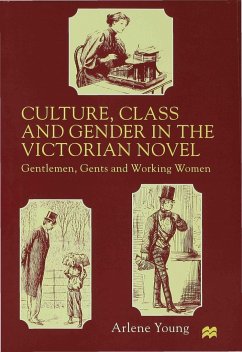
The Reader in the Dickensian Mirrors
Some New Language

PAYBACK Punkte
38 °P sammeln!
Through close attention to the representation of the reader in ten of Dickens's novels, this study brings their specifically Victorian assumptions into direct confrontation with the insights of modern critical theory. The study locates in Dickens a tendency to so reanimate the ancient principle of mimesis that not only does the text become a mirror held up to its reader but, in a radical revision of our post-Saussurean understanding, language becomes not so much a deconstructive system of differences as a reconstructive system of resemblances.














